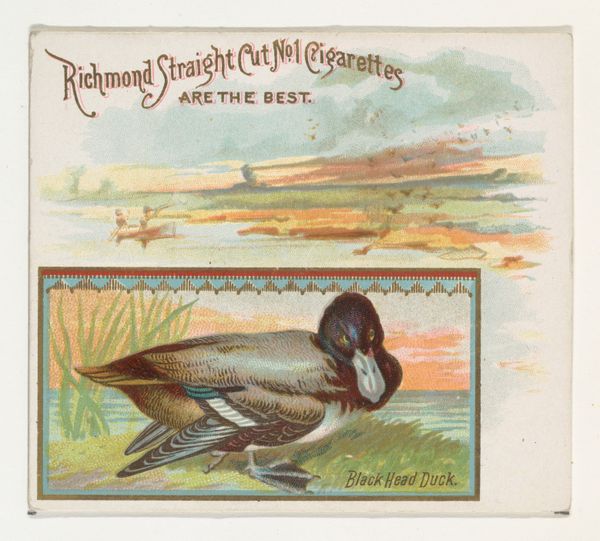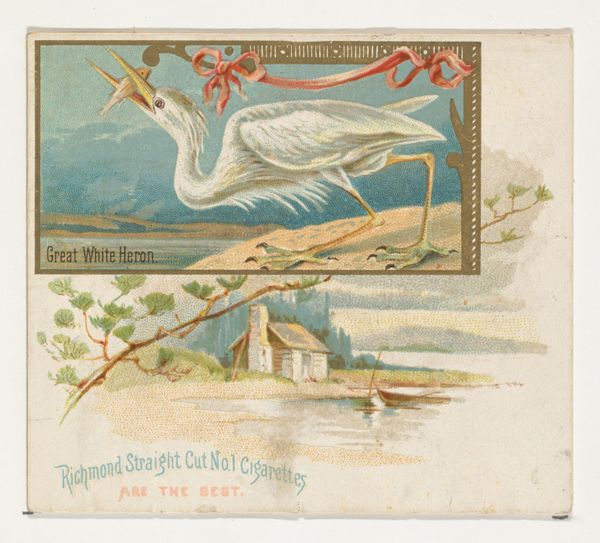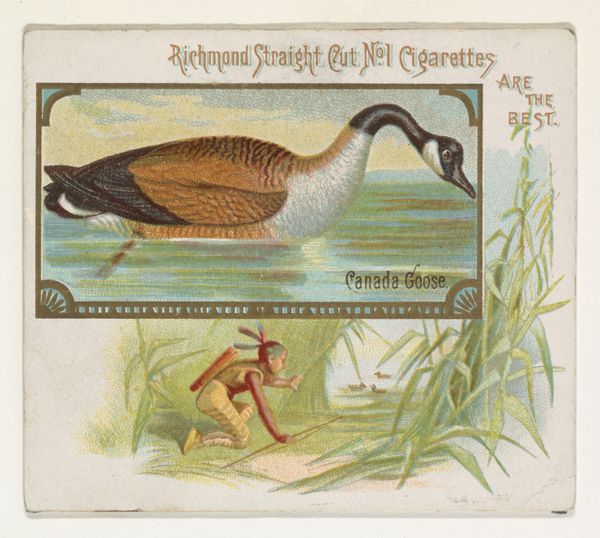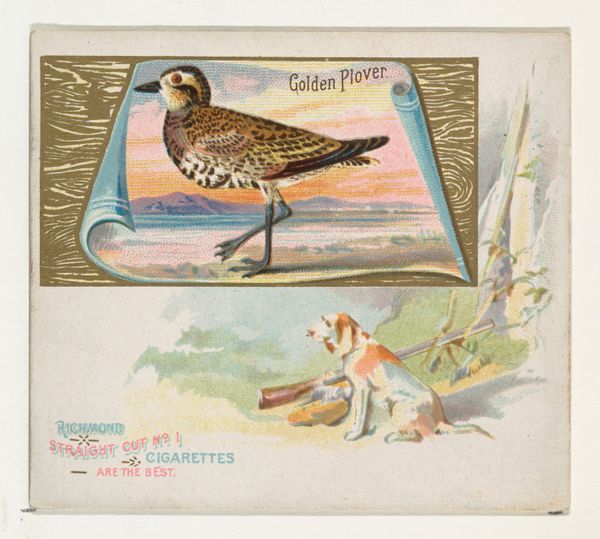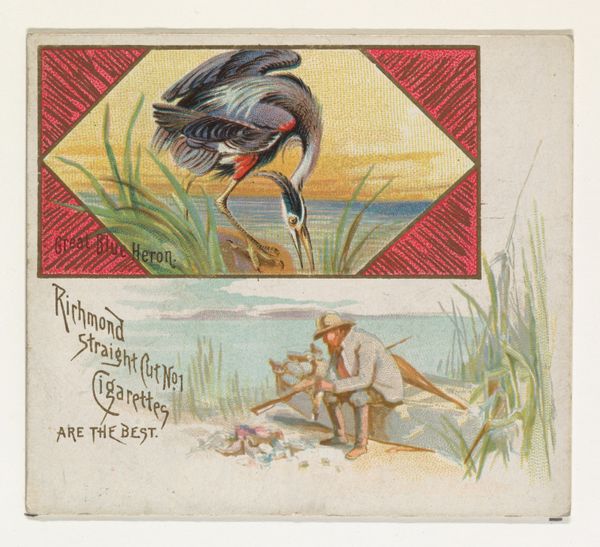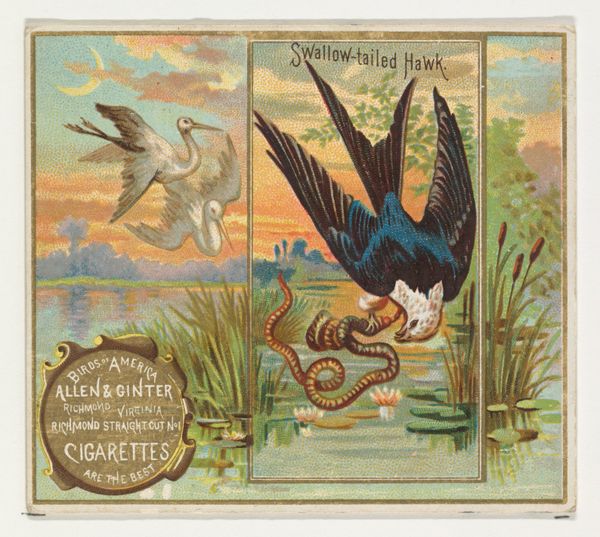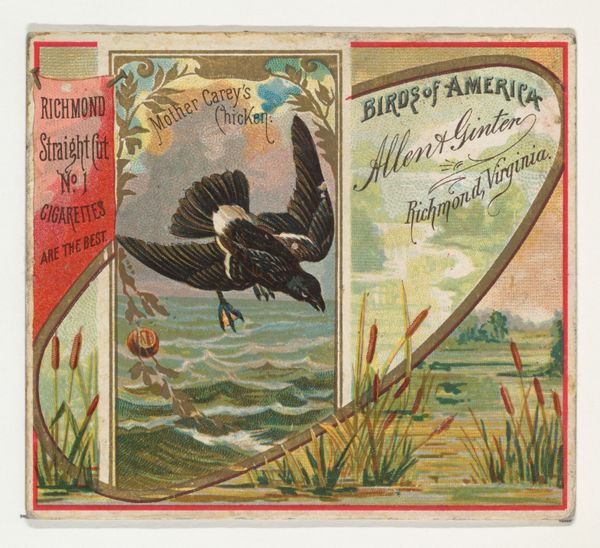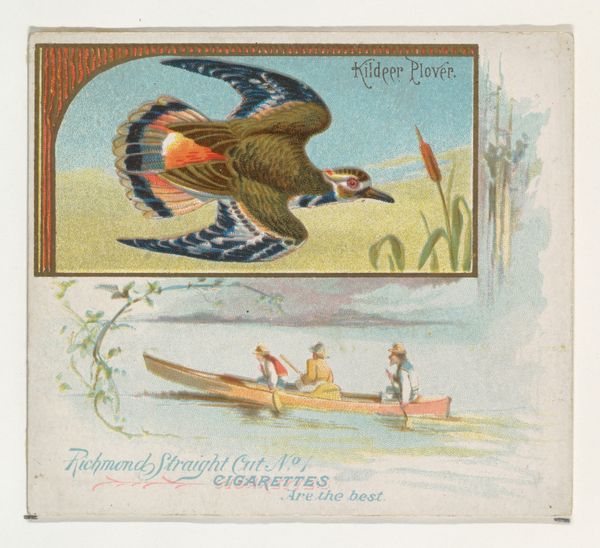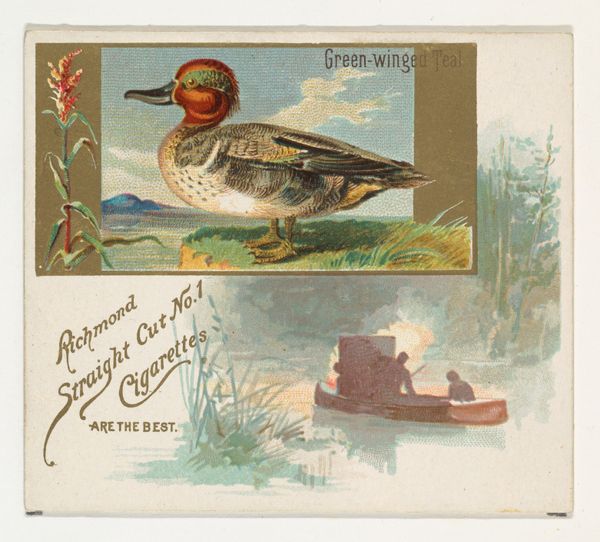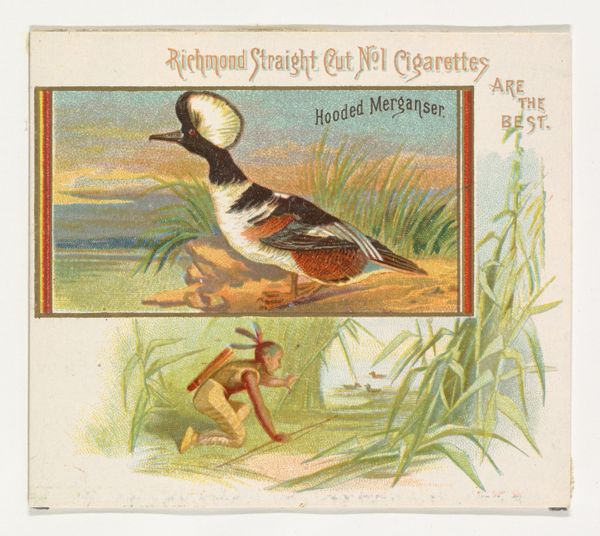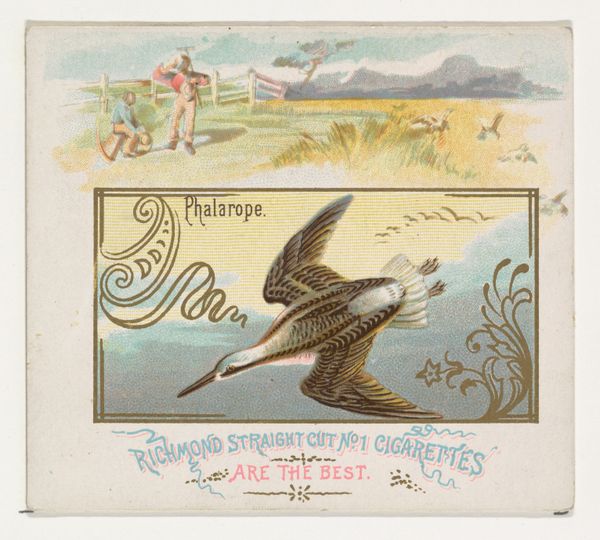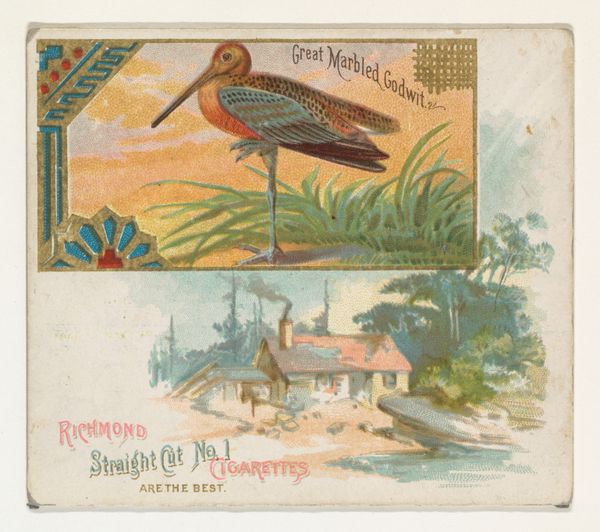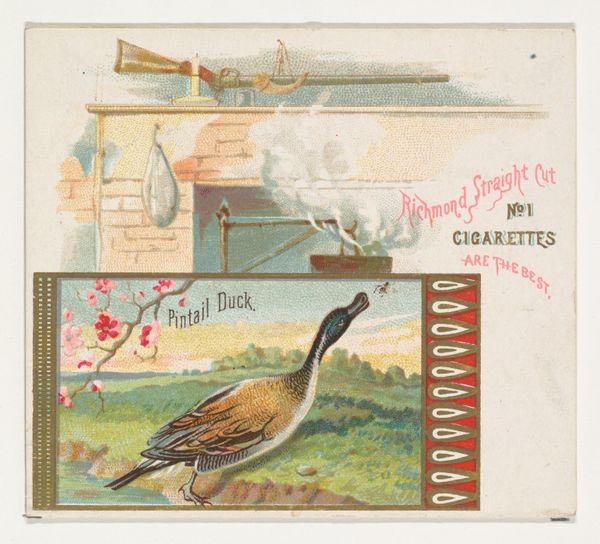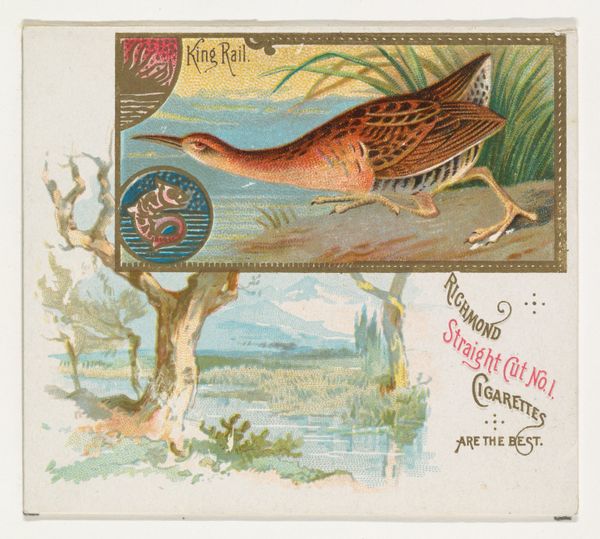
Mallard Duck, from the Game Birds series (N40) for Allen & Ginter Cigarettes 1888 - 1890
0:00
0:00
drawing, print, watercolor
#
drawing
#
water colours
# print
#
impressionism
#
watercolor
#
watercolour illustration
#
watercolor
Dimensions: Sheet: 2 7/8 x 3 1/4 in. (7.3 x 8.3 cm)
Copyright: Public Domain
Editor: This is "Mallard Duck" from the Game Birds series, made between 1888 and 1890 by Allen & Ginter. It's a watercolor drawing, but reproduced as a print for cigarette cards. It feels almost nostalgic, in a way, with its impressionistic style. What stands out to you about this piece? Curator: It’s fascinating how these cards collapse high art and low culture. Watercolors, typically associated with fine art, become a mass-produced commodity. Think about the labor involved – the original artist, the printing technicians… How does this context change your understanding of "artistic value" in this instance? Editor: That’s a really interesting point. I hadn’t really considered the mass production aspect. So, the artistic value isn’t just about the skill of the initial painting, but also the industrial process that made it widely available? Curator: Exactly. And consider the consumer – someone purchasing cigarettes is also consuming art, blurring those lines. The imagery, of course, serves to advertise the brand. The idyllic image of the mallard also encourages us to ask: what is being obscured in these depictions? Who profits and at what cost? Editor: So the card becomes a small window into understanding Victorian-era industrial practices and consumer culture? The aesthetic quality almost distracts you from those deeper material and social underpinnings. Curator: Precisely. And by examining these "minor" art forms, like cigarette cards, we gain valuable insights into the broader cultural and economic landscapes of the time. Editor: I see what you mean, by looking at how the materials are produced and circulated, you can find so much meaning. Thanks, that’s really helpful. Curator: Indeed. It prompts us to reconsider the typical hierarchy between 'high' and 'low' art. I learned something too.
Comments
No comments
Be the first to comment and join the conversation on the ultimate creative platform.
